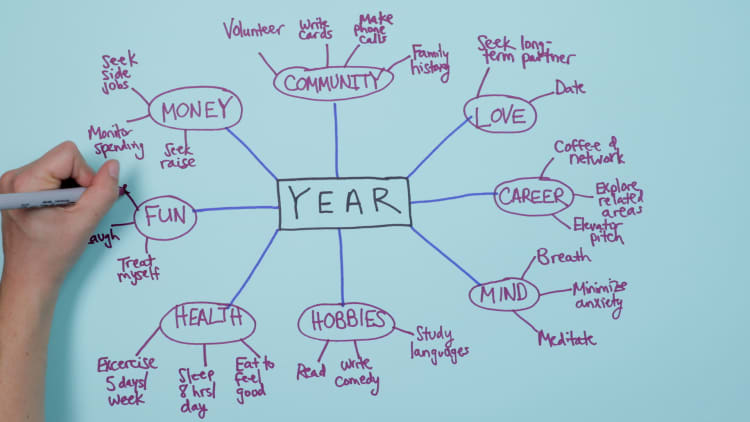When you have a long list of goals, it can be difficult to determine which one to prioritize. However, University of Pennsylvania psychology professor Angela Duckworth says the most effective way to discover your "ultimate concern" or "top-level" priority in life is by organizing your goals into a hierarchy.
"Picture a pyramid in your head of goals," she says in an interview with Amazon. At the very bottom are your low-level goals, which are "very concrete things on your to-do list" that include calling your mother back or responding to an email.
But your focus shouldn't be on sticking to these "to-do list" goals, says Duckworth. Instead, you must make sure that these low-level goals will serve your mid-levels goal and that your mid-level goals will serve your high-level goals.
"Ultimately, you'll have what some scientists like to call an ultimate concern," explains Duckworth. "And that goal is the one that you're tenacious about, that you are stubborn about, that you wake up in the morning and go to bed aligned to."
This ultimate goal reigns supreme, says the psychologist, which means that you may have to switch out one of the lower level goals if it's no longer setting you up to reach that priority. "Returning again and again to this question, 'What is my top-level goal?" [and] 'What am I all about?' is a tremendously powerful exercise," says Duckworth.
The psychologist advises that you continuously ask yourself this question until you get to a phrase that in ten words or less says "this is who I am." Once you're able to answer that question, every smaller decision should go toward furthering that ultimate goal.
Creating this mental pyramid not only helps you find your top-level goal but it also works in reverse, according to Duckworth. "When I remember what my top-level goal is," says the psychologist, "it helps me make decisions all the way down the tree."
Duckworth gives a personal example: "My top goal is helping children thrive using psychological science," she says. "And every small decision that I need to make today or tomorrow, if I put it to that test, does this or does this not further that top-level goal?"
By answering that simple question, Duckworth says, "I completely have my priorities in order."
Like this story? Like CNBC Make It on Facebook.
Don't miss: Richard Branson: What 7 successful people can teach you about having fun while chasing your goals




